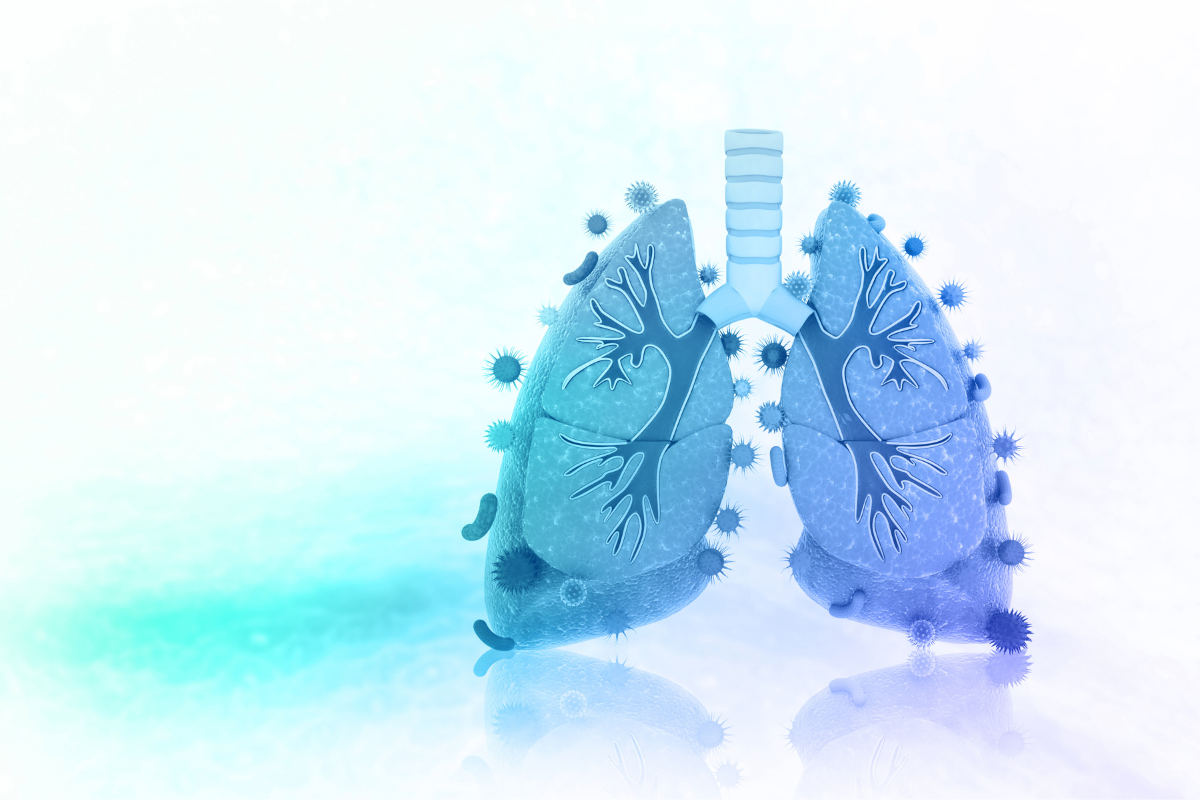People take supplements to improve or optimize their health. So what happens when you look at the label, and the ingredient list is filled with unrecognizable additives?
Most of us are familiar with essential nutrients such as the B vitamins, vitamin D, zinc, and calcium. But there are many other nutrients that support the normal structures and functions in the body. Although these nutrients can often be obtained in the diet, having high amounts above normal dietary intake can be helpful when you want to support specific areas of your health.
N-acetylcysteine, NAC for short, is in the class of nutrients we call amino acids. In general, amino acids are the small building blocks for larger proteins, but they are also building blocks for other compounds, as well as having actions on their own. NAC is a sulfur-containing amino acid – the other sulfur-containing amino acids important to human health are cysteine (which can be made from NAC), homocysteine, methionine, and taurine.1
So, what does NAC do to support everyday health? Here are the top five benefits of NAC.

1. NAC benefits for antioxidant functions
A primary role of NAC is as an antioxidant. NAC is a precursor to the body’s primary intracellular antioxidant, glutathione,2 but NAC also acts on its own to neutralize free radicals. As an antioxidant, NAC benefits include activity against oxygen radicals, peroxides, and nitrogen radicals.
The body needs glutathione during times of oxidative stress (when free radicals outnumber antioxidants) or when the body triggers inflammatory responses to infection or injury. Too many free radicals can damage tissue and cells. The body, in all its wisdom, produces glutathione to counteract these free radicals.
But there’s a limit to how much and how fast the body can produce glutathione. The process needs three amino acids: glutamic acid, glycine, and cysteine. Because cysteine is found in the lowest concentrations inside cells, lack of it can limit glutathione production.3
As a glutathione precursor, NAC (providing cysteine) is very efficient at replenishing cellular glutathione stores. As the most abundant and most important antioxidant in the body, glutathione can be depleted through exercise, age, trauma, infection, and exposure to environmental toxins. Foods such as cruciferous vegetables, and proteins like whey protein, help maintain normal glutathione levels, but taking NAC has the potential to rapidly increase stores when needed.
2. NAC for lung and respiratory health
Although NAC benefits are present throughout the body, levels of NAC and glutathione are more concentrated in the liver and the lungs. When you think about what your lungs do, they are exposed to everything you breathe in. Obviously, the majority of what we breathe is air, but we also inhale dust, smoke, pollens, microscopic viruses and bacteria, pollutants, and other non-essential things – intentionally or unintentionally.
Is NAC good for lungs? With support from antioxidants like glutathione and NAC, lung health can be maintained with an optimal response to the things we breathe in. NAC has been shown to favorably promote antioxidant activity in the lungs and support the lung’s normal inflammatory response – to benefit respiratory health.4
3. NAC for liver health
If you take NAC, liver protection might be on your mind because the liver is another place where NAC is concentrated. The liver is susceptible to oxidative stress and inflammation from continuous exposure to alcohol, a fatty diet, certain medications, or environmental pollution. These conditions can lead to liver damage and disease.3 Because the liver is the primary organ of detoxification, it is important that the liver is provided optimal antioxidant capacity. Is NAC good for your liver? NAC liver support centers around maintaining this antioxidant capacity, thereby protecting the hepatocytes (liver cells). Because of NAC’s role in producing glutathione, it supports the reduction of the oxidative insults to the liver from foreign substances. In addition, through the donation of its sulfur, NAC supports the normal detoxification function of the liver as it breaks down and eliminates toxic substances.
4. NAC for immune health
NAC also provides antioxidant support in the immune system. Having healthy antioxidant function in immune cells is important because the immune system creates free radicals during its normal day-to-day functions and needs to constantly keep this process in balance. NAC also supports the growth and function of immune cells such as T-cells, neutrophils, and lymphocytes.5 In at least one study of menopausal women, 600 mg of NAC daily for four months improved markers of immune health and lowered oxidative stress.6
5. NAC for exercise performance
NAC has been investigated as a method to minimize muscle fatigue brought on by oxidative stress from exercise and athletic training. During intense exercise, the body has elevated levels of oxidized glutathione, showing that the body uses more of its naturally produced glutathione to minimize excess free radicals.7
NAC can be used pre-workout to ensure adequate production of glutathione to reduce oxidative insults and help prevent injury from overtraining. One study showed that administering NAC one hour before a workout resulted in a consistent 15-percent increase in force output that remained constant during the 30 minutes of repetitive weight-based exercises, compared to a control group that was not given NAC.8
Other NAC benefits
Additional NAC supplement benefits include support for women’s reproductive health,9 benefits for brain health and cognitive fuction,10 and as a protective antioxidant for the kidneys.11
Overall, NAC has potential as a powerful antioxidant and diverse nutrient that can be used to support many areas of health – from the lungs to the liver. Although it is safe as a nutritional supplement for most individuals, it is also best to talk to your medical professional before taking NAC. Because it is a powerful player in promoting the body’s antioxidant capacity, NAC can be a great addition to anyone’s daily supplement routine.
- Brosnan J, Brosnan M. The sulfur-containing amino acids: an overview. J Nutr 2006;136(6):1636S-1640S. doi:10.1093/jn/136.6.1636S
- Aldini G, Altomare A, Baron G, et al. N-Acetylcysteine as an antioxidant and disulphide breaking agent: the reasons why. Free Radic Res 2018;52(7):751-762. doi:10.1080/10715762.2018.1468564
- Millea PJ. N-acetylcysteine: multiple clinical applications. Am Fam Physician 2009;80(3):265-269. https://www.aafp.org/pubs/afp/issues/2009/0801/p265.html
- Dekhuijzen P, van Beurden W. The role for N-acetylcysteine . . . . Int J Chron Obstruct Pulmon Dis 2006;1(2):99-106.]
- Dröge W, Kinscherf R, Mihm S, et al. [23] Thiols and the immune system: Effect of N-acetylcysteine on T cell system in human subjects. In: Methods in Enzymology, vol 251. Elsevier; 1995:255-270. doi:10.1016/0076-6879(95)51128-8
- Arranz L, Fernández C, Rodriguez-Perez A, et al. The glutathione precursor N-acetylcysteine improves immune function in postmenopausal women. Free Radic Biol Med 2008;45:1252-1262. doi:10.1016/j.freeradbiomed.2008.07.014
- Kerksick C, Willoughby D. J Int Soc Sports Nutr 2005;2(2):38-44. doi: 10.1186/1550-2783-2-2-38 https://jissn.biomedcentral.com/articles/10.1186/1550-2783-2-2-38
- Reid MB, et al. N-Acetylcysteine inhibits muscle fatigue in humans. J Clin Invest 1994;94(6):2468–2474. doi: 10.1172/JCI117615. https://www.jci.org/articles/view/117615
- Thakker D, Raval A, Patel I, Walia R. N-acetylcysteine … : A systematic review and meta-analysis of randomized controlled clinical trials. Obstet Gynecol Int 2015;2015. doi:10.1155/2015/817849
- Skvarc D, Dean O, Byrne L, et al. The effect of N-acetylcysteine (NAC) on human cognition – A systematic review. Neurosci Biobehav Rev 2017;78:44-56. doi:10.1016/j.neubiorev.2017.04.013
- Hosseinjani H, Moghaddas A, Khalili H. N-acetylcysteine … Eur J Clin Pharmacol 2013;69(7):1375-1390. doi:10.1007/s00228-013-1494-8
Share:
Related Posts

Benefits of Creatine in Perimenopause and Menopause
Written by Maura MacDonald, MS, RD, CSSD | 2025 As we age, the notion is that we will inevitably become weaker. Not as mobile as

Goodbye Pie Chart, Hello Phase 1 Sliders
Written by Allison Smith, ND | 2025 As we usher in a new era of DUTCH testing which leaves behind the concept of the three-way

Introducing the DUTCH Dozen
Written by Kelly Ruef, ND | 2025 Hormone testing can be complex, which is why Precision Analytical developed the DUTCH Dozen, an interpretive framework that

DUTCH Report Enhancements
Written by Hilary Miller, ND | 2025 Precision Analytical have released the newest version of the DUTCH Test. This is the report’s most significant update

Gallbladder Health 101: What It Does and How to Keep It Working Well
Written by Ashley Palmer & Pooja Mahtani | 2025 The gallbladder may not get much attention compared to the gut, but it plays a central

